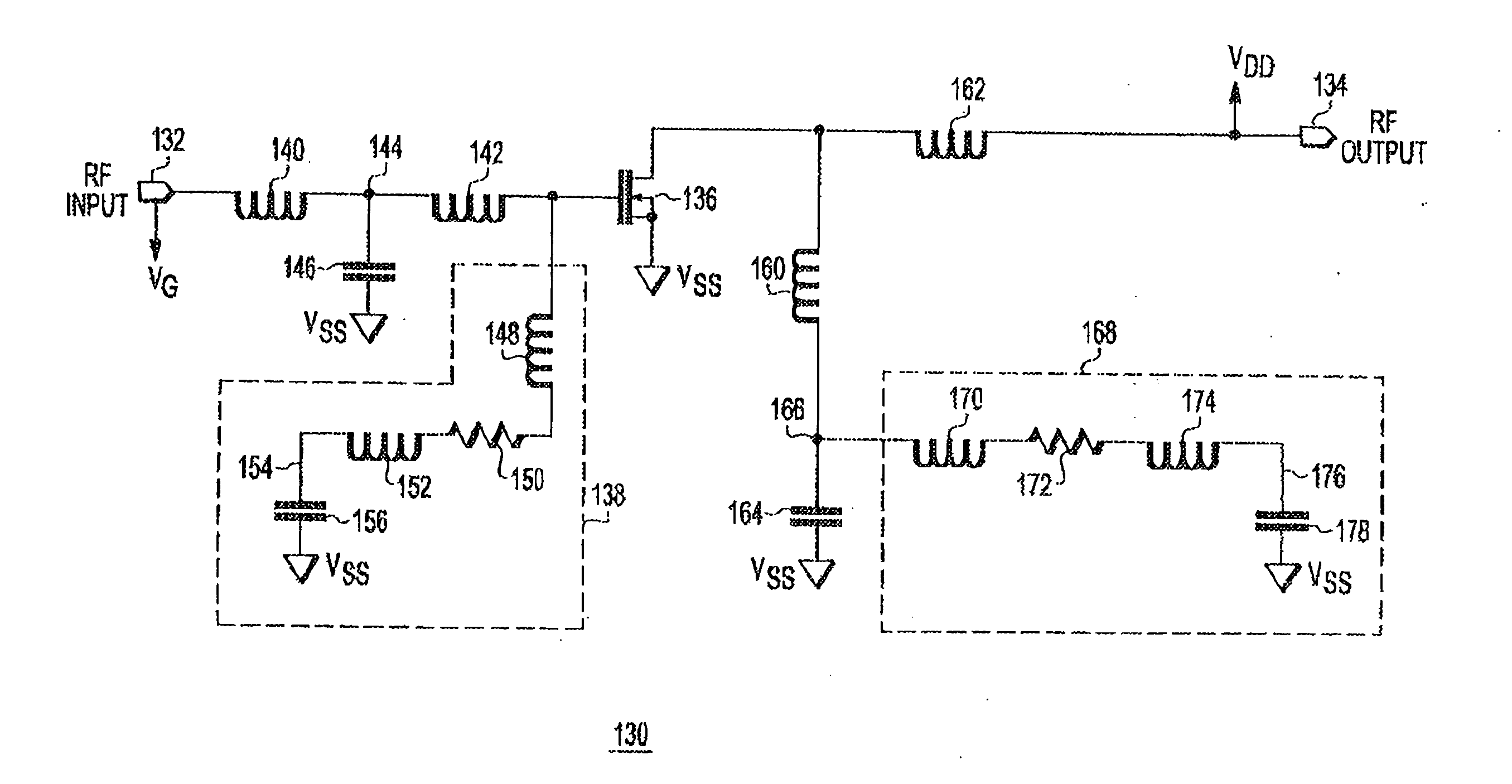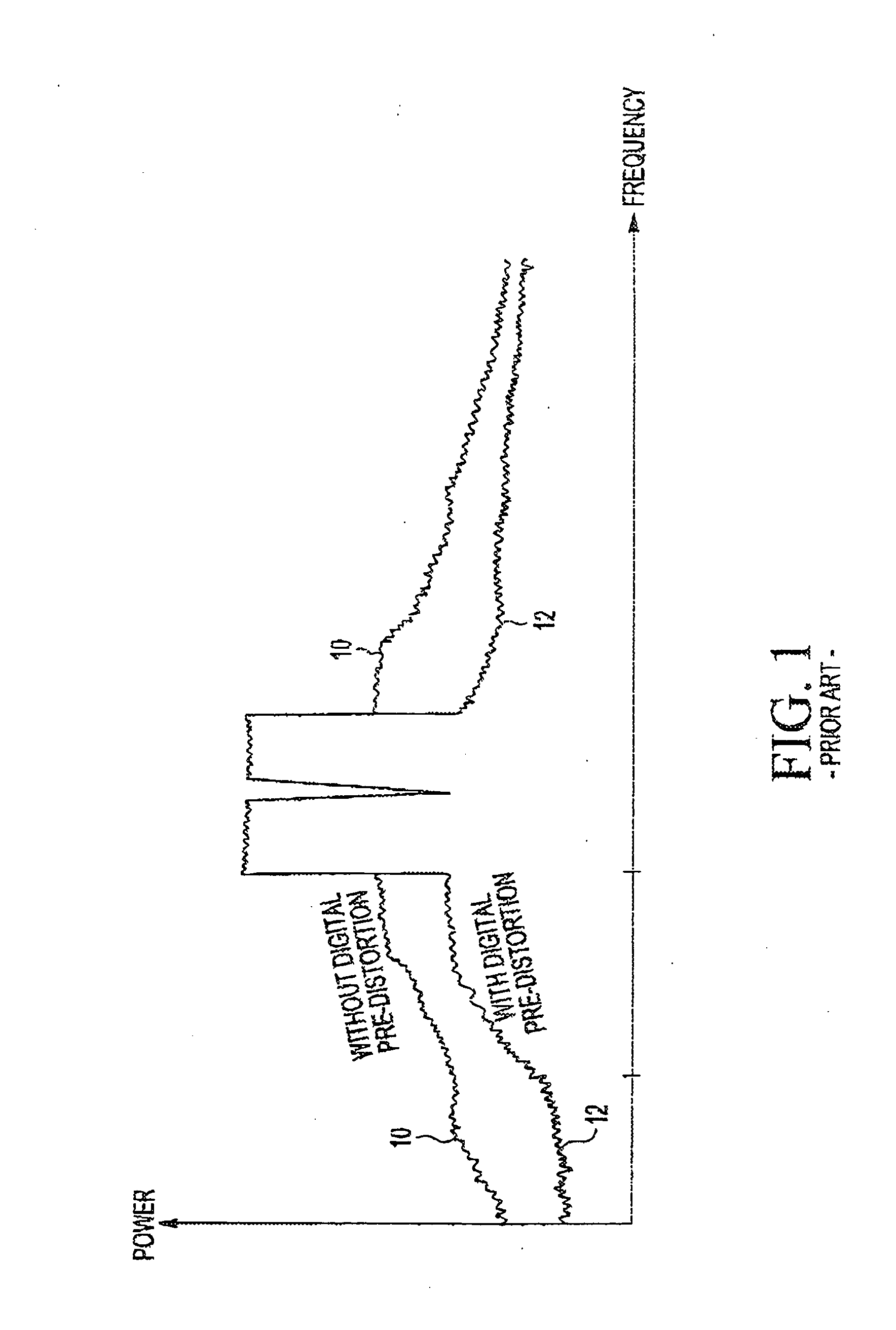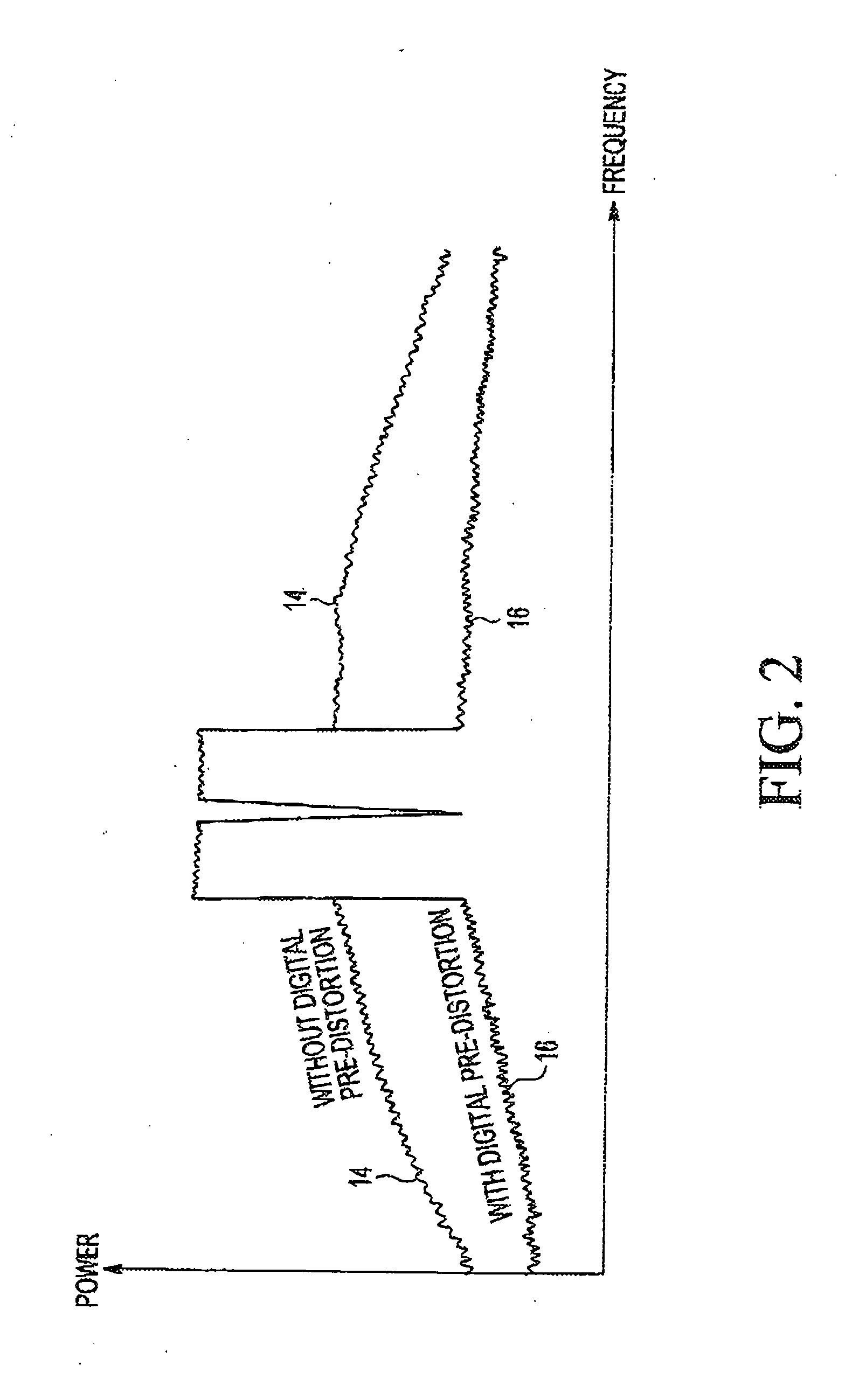RF power transistor circuit
a technology of power transistors and transistors, which is applied in the field of electromagnetic power devices, can solve the problems of increasing the distortion in the sideband of conventional rf power amplifiers, incurring excessive distortion and ruggedness issues, and having an upper limit to the bandwidth of input signals
- Summary
- Abstract
- Description
- Claims
- Application Information
AI Technical Summary
Benefits of technology
Problems solved by technology
Method used
Image
Examples
Embodiment Construction
[0022]There is disclosed herein a power transistor circuit for use in a power amplifier that uses a frequency decoupling network capable of communicating high instantaneous bandwidth signals. A decoupling circuit having an inductive element, a resistive element and a capacitor is coupled together in series between a control electrode of a power transistor and a power supply terminal. The decoupling circuit dampens a resonance at a frequency lower than an RF frequency. The disclosed structure provides an RF power amplifier having low baseband impedance across an entire signal bandwidth and permits significantly increased video bandwidth. Low frequency resonance is corrected by the decoupling circuit and low frequency phase transition is eliminated to ensure good digital pre-distortion performance. The resistive element of the decoupling circuit permits pre-distortion linearization of signals with very closely spaced carriers and thus provides improved digital pre-distortion lineariza...
PUM
 Login to View More
Login to View More Abstract
Description
Claims
Application Information
 Login to View More
Login to View More - R&D
- Intellectual Property
- Life Sciences
- Materials
- Tech Scout
- Unparalleled Data Quality
- Higher Quality Content
- 60% Fewer Hallucinations
Browse by: Latest US Patents, China's latest patents, Technical Efficacy Thesaurus, Application Domain, Technology Topic, Popular Technical Reports.
© 2025 PatSnap. All rights reserved.Legal|Privacy policy|Modern Slavery Act Transparency Statement|Sitemap|About US| Contact US: help@patsnap.com



